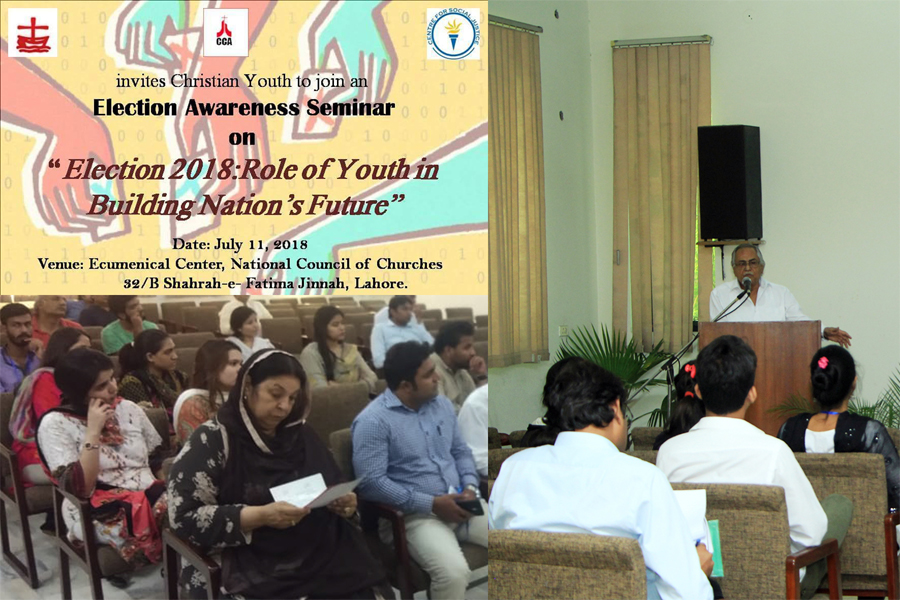Young Pakistani Christians discuss on ‘Role of Youth in Nation Building’

Role of young people in nation building in Pakistan, in the context of the forthcoming general elections in the country, was the theme of a seminar held on 11 July 2018 at the National Council of Churches in Pakistan (NCCP) with the participation of young people from various churches in Pakistan.
Organised by the NCCP and the Christian Conference of Asia (CCA) in collaboration with the Centre for Social Justice (CSJ), the seminar was aimed at building awareness among young Christians to exercise their democratic rights to choose the future leaders of the country.
Sunila Ammar, Programme Consultant of CCA introduced the theme, ‘Elections 2018: Role of Youth in Building Nation’s Future’ and outlined various issues in Pakistan’s present context, especially the vital role the young Pakistanis could play in building the future of the nation.
Victor Azaria, General Sectary of NCCP stated that Christians in Pakistan, although a minority, should participate in strengthening democratic governance for which exercising their voting right was one of the most important factors.
Fahad Shahbaz and Kafeel Rana from the Youth General Assembly spoke on the need for youth to play their part in the strengthening of Pakistan’s democracy, more so as the democratic pillars of the country were facing dire internal and external threats now. They urged the youth to actively participate in the forthcoming elections in order to form a truly democratic government.
Representatives of political parties such as Pakistan Tehreek –e- Insaf (PTI) and Pakistan People’s Party (PPP) shared election manifestos with the participants and expounded their parties’ plans and programmes for the youth from the religious minority communities.
Peter Jacob, Executive Director of Center for Social Justice added the grim realities of structural and constitutional biases against the religious minorities in Pakistan, and he gave suggestions to improve the situation.
A representative of religious minorities in the Provincial Assembly of Punjab, Shunila Ruth emphasized the importance of confidence building measures among the young Christians in order to steer their active participation in nation building.
The seminar was attended by 40 participants from two CCA member churches - the Church of Pakistan and the Presbyterian Church of Pakistan, and the Roman Catholic Church.










